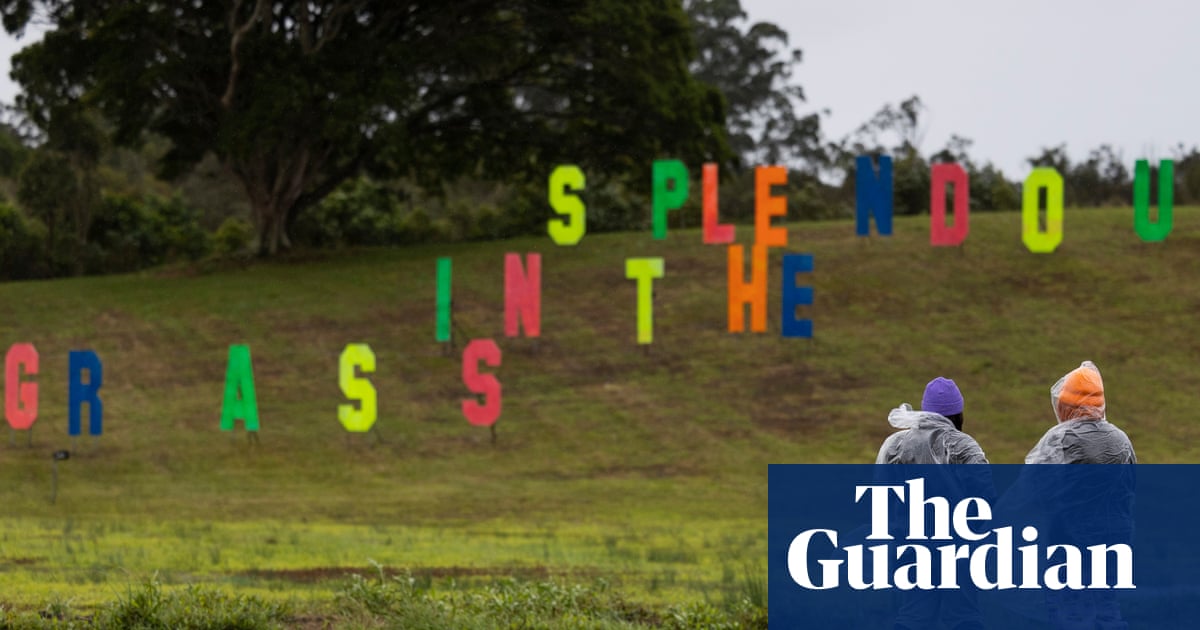New South Wales police made an “outrageous” argument that it was “objectively necessary” to search a woman’s genital areaduring a strip-search at a music festival, despite admitting the search was unlawful, a court has heard.
The police force admitted in court documents that its July 2018 strip-search of Raya Meredith at Splendour in the Grass – which discovered nothing illegal – was unlawful and unjustified.
Meredith is the lead plaintiff of a group of 3,000 people subjected to potentially unlawful strip-searches at music festivals by NSW police officers between 2016 and 2022.
Sign up for Guardian Australia’s breaking news email
They are part of a class action, brought by Slater and Gordon lawyers and the Redfern Legal Centre, against the state of NSW over allegedly unlawful strip-searches – including of children – by police. The affected cohort could be more than twice that size.
Last week, the court heard from Meredith, who gave emotional testimony about her strip-search by police in a makeshift tarpaulin tent at the 2018 Splendour in the Grass after a drug dog sniffed in her direction but then walked on.
During the search, Meredith – who was 27 at the time and postpartum – was asked to remove her tampon.
Acting for the plaintiffs, Kylie Nomchong SC, told the court in her closing argument that NSW police should pay aggravated damages due to their conduct during the class action.
She said on Wednesday that the police, who are yet to give their closing argument, had argued in a submission that aspects of Meredith’s search were “objectively reasonably necessary” despite admitting the search was unlawful.
“We get to the quite outrageous submissions ... where the defendant is asking your honour to infer that it was objectively necessary to search the plaintiff’s breasts and genital area,” Nomchong told the court.
“It is unbelievably offensive to assert, without any evidence whatsoever, that there was some objectively reasonable basis on the part of the searching officer to inspect the plaintiff’s vagina, to ask her to pull out her tampon, to ask her to bear her buttocks and anal area and to bend over and drop her breasts. It’s just offensive.”
Justice Dina Yehia responded by stating she would also question the police’s legal team.
“I’m not quite sure I understand those submissions, given the way this matter has proceeded,” the judge said.
Nomchong also raised the decision by NSW police not to call any witnesses.
In the days before the hearing began, the state of NSW withdrew 22 witnesses, mostly police officers, who were due to contest Meredith’s version of events. That change saw the case reduced from a scheduled 2o days to three days.
Sign up toMorning Mail
Our Australian morning briefing breaks down the key stories of the day, telling you what’s happening and why it matters
after newsletter promotion
The female police officer who conducted the strip search was one of the witnesses the police force withdrew.
“All we know about her is that there’s nothing in her notebook and she has no recollection of it whatsoever,” Nomchong told the court.
“The only available inference is that any evidence from those police officers would not have assisted the defendant.”
Nomchong told the court that because no officers were called, it was difficult to know whether it was “deliberate or not” that a male officer who came into the tent while Meredith was undressed.
“On the plaintiff’s unchallenged evidence, he came in and he observed her in that position, there is no basis on which to say he wasn’t a participant in the search,” Nomchong told the court.
“He didn’t stand outside the tent and say: ‘knock, knock, can I come in? Is it all right?’ He burst in unannounced.”
Closing arguments before Yehia were expected to end on Wednesday.
